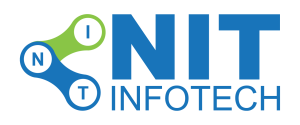In an era where data breaches and cyber threats are increasingly common, disk encryption has emerged as a critical security measure for protecting sensitive information. This process involves converting data into a format that is unreadable without the appropriate decryption key, ensuring that even if data is accessed unlawfully, it remains secure. However, while disk encryption offers significant advantages, it also comes with its own set of challenges. This article explores both the benefits and drawbacks of disk encryption.
Advantages of Disk Encryption
- Enhanced Data Security One of the primary benefits of disk encryption is its ability to secure sensitive data. By encrypting data stored on hard drives, USB devices, or cloud storage, organizations can protect themselves from unauthorized access. In cases of theft or loss, encrypted data becomes unreadable to anyone without the decryption key, significantly reducing the risk of data breaches.
- Compliance with Regulations Many industries are subject to strict regulatory requirements regarding data protection. Compliance frameworks such as the General Data Protection Regulation (GDPR) and the Health Insurance Portability and Accountability Act (HIPAA) mandate robust data protection measures. Disk encryption can help organizations meet these compliance standards, avoiding potential legal penalties and reputational damage.
- Data Integrity and Authenticity Encryption not only secures data but also helps maintain its integrity. It prevents unauthorized modifications, ensuring that information remains intact and trustworthy. This is particularly important for industries where data accuracy is critical, such as finance and healthcare.
- Peace of Mind Knowing that sensitive data is encrypted can provide peace of mind for both individuals and organizations. This assurance can foster a culture of security awareness and responsibility, prompting employees to be more vigilant about data handling practices.
- Control Over Access Disk encryption empowers users to control who can access their data. Decryption keys can be managed and shared selectively, allowing organizations to enforce access policies that align with their security protocols.
Disadvantages of Disk Encryption
- Performance Impact One significant drawback of disk encryption is its potential impact on system performance. Encrypting and decrypting data requires computational resources, which can slow down the performance of older hardware or devices with limited processing power. This can affect user experience, especially in environments where speed and efficiency are crucial.
- Key Management Challenges The security of encrypted data hinges on the effective management of encryption keys. If keys are lost or mishandled, access to the encrypted data may be permanently lost. Organizations must implement robust key management practices to avoid this risk, which can add complexity to their security infrastructure.
- Increased Complexity Implementing and maintaining disk encryption systems can complicate IT environments. Organizations may need to invest in additional training for staff, update policies, and ensure that all devices are consistently encrypted. This added complexity can strain resources and require ongoing management.
- Limited Data Recovery Options In the event of a system failure or data corruption, recovering information from an encrypted disk can be more challenging. Recovery processes may be more complex and time-consuming, especially if the encryption keys are also compromised or lost.
- User Error Risks Human error is always a factor in security. Users may inadvertently encrypt data incorrectly or forget passwords, leading to potential data loss. Organizations must balance the benefits of encryption with the need for user training and awareness to minimize such risks.
Conclusion
Disk encryption is a powerful tool for protecting sensitive data in today’s digital landscape. Its ability to enhance security, ensure compliance, and maintain data integrity makes it an attractive option for both individuals and organizations. However, the potential performance impacts, key management challenges, and risks of user error underscore the need for careful planning and implementation.
As with any security measure, organizations must weigh the benefits against the drawbacks and tailor their approach to fit their specific needs and resources. By doing so, they can effectively leverage disk encryption to safeguard their valuable data while minimizing the associated challenges.

